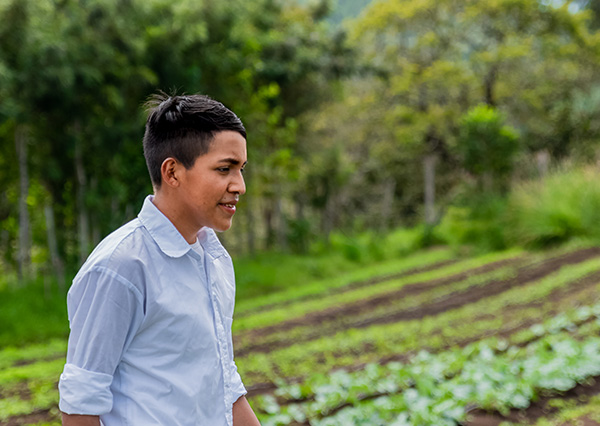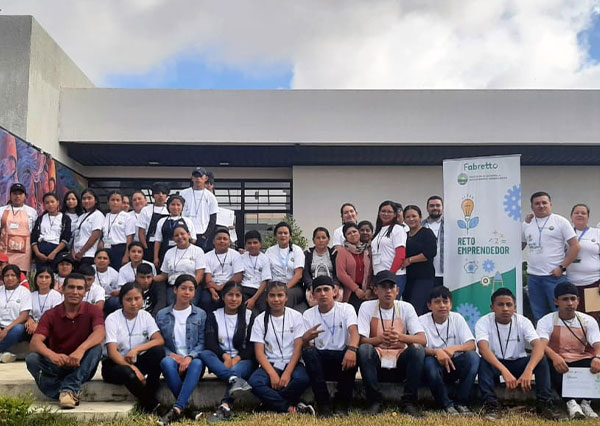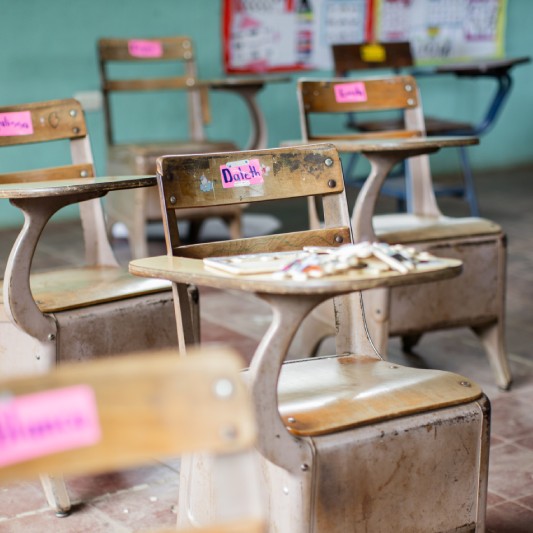9-9-17 | Our Programs Partnerships
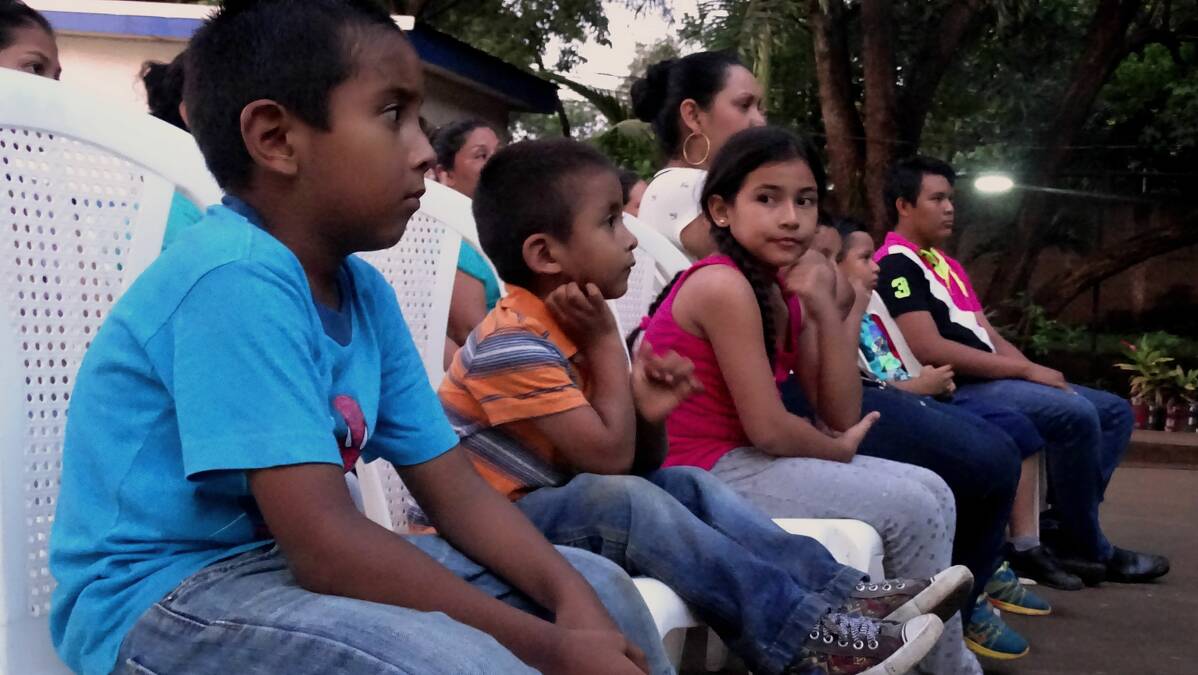
Children, parents, teachers and staff of schools John Douglas de Masaya, Solomon de la Selva de Nindirí ; and Andrés Castro and Jesús de Nazareth de Chinandega, participated in film screening in which the documentary “Addicted to plastic” and the short film “The Island of the Flowers” were projected. The schools are located in peri-urban communities, vulnerable to poverty, child malnutrition and environmental pollution.
The presentations are an initiative from the Project Nutriendo el Futuro, funded by Cargill, in partnership with CARE International and executed in Nicaragua by Fabretto Foundation. The activities took place throughout the day, adapted to the communities every day dynamics where more than 80 people participated.
The methodology includes an introductory talk, projection of the tape on a big screen; analysis of content, a period of questions and answers, discussion with the public and reflection on the subject.
“Addicted to Plastic” puts three years of filming together in twelve countries, and explains the state of the plastic production and treatment industry. Possible solutions to the widespread pollution of plastic are raised, and stories of responsible consumption of these products are highlighted.
“The Island of Flowers” exposes the life cycle of a tomato, which is planted, harvested, transported and sold,and how it rots and ends up in the garbage. This short film promotes reflection on consumer goods, food waste and social inequalities.
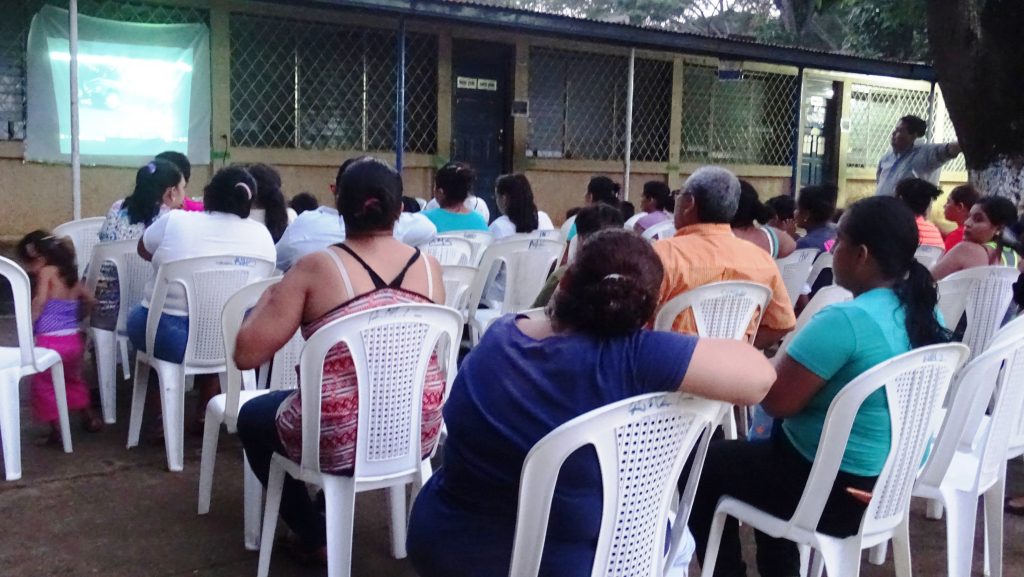
Creating awareness in RECYCLING, applying organic fertilizer, reducing the consumption of plastic, avoiding food waste and creating campaigns in schools, are part of what was proposed and the community agreed to contribute to the care of the environment in their communities.
“Here children are taught to appreciate a clean school, but they must be motivated through more activities; a good example could be installing signs, so they are constantly reminded”, suggests Wiliam Parrales, a parent of on the students from the John Douglas School.
Hazel Moreno, an assistant filmmaker at the Jesús de Nazareth School, explains: “when we buy the tortillas they are handed in a plastic bag; when we buy vegetables, we are also given a plastic bag. We are slowly polluting the planet for hundreds of years to come.”
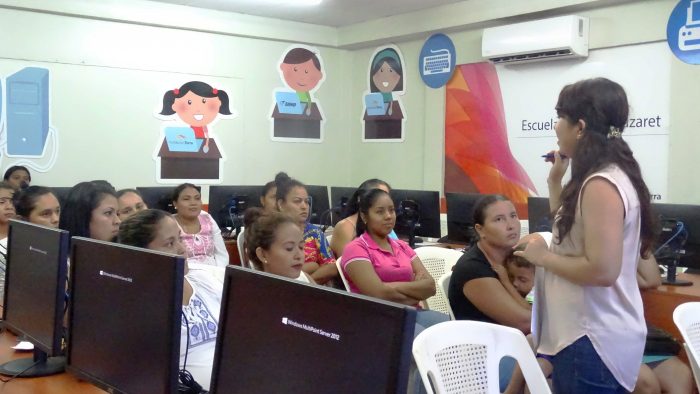
The experience of a the film screening was a first for the four school. “Although this initiative is new to us, we have already seen a positive response from the students. We are hoping to help other communities the same way,” said Manuel Ordonez, Director of the Andrés Castro School.
The film screening were organized parallel to the visit of “El bus Azul”. The next ones will take place in other schools in Masaya, Nindirí and Tipitapa.
If you would like to contribute to the development of activities such as these, you can support by making a donation.




